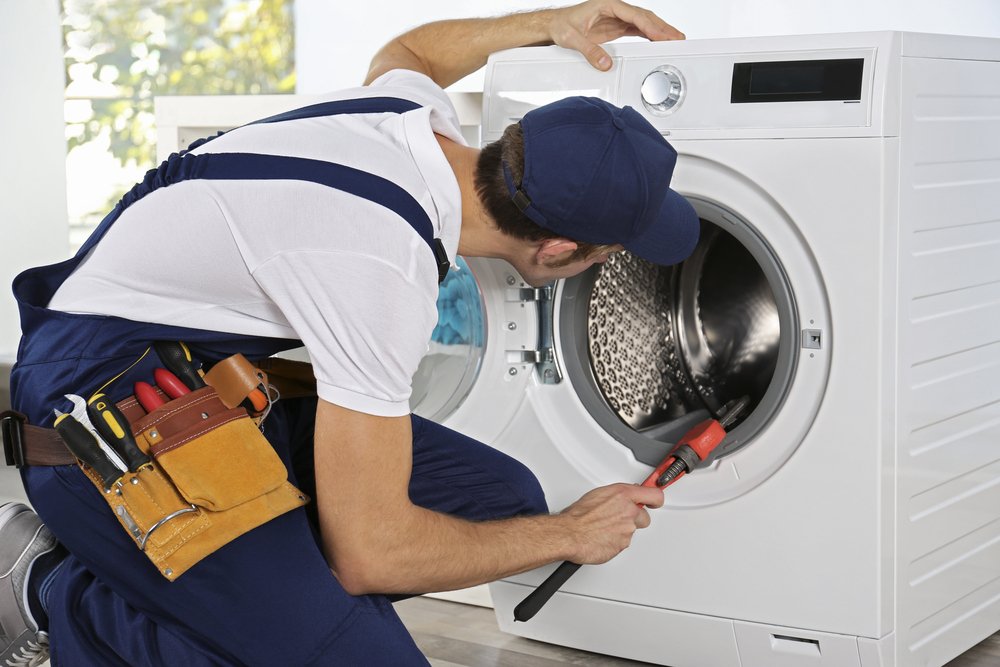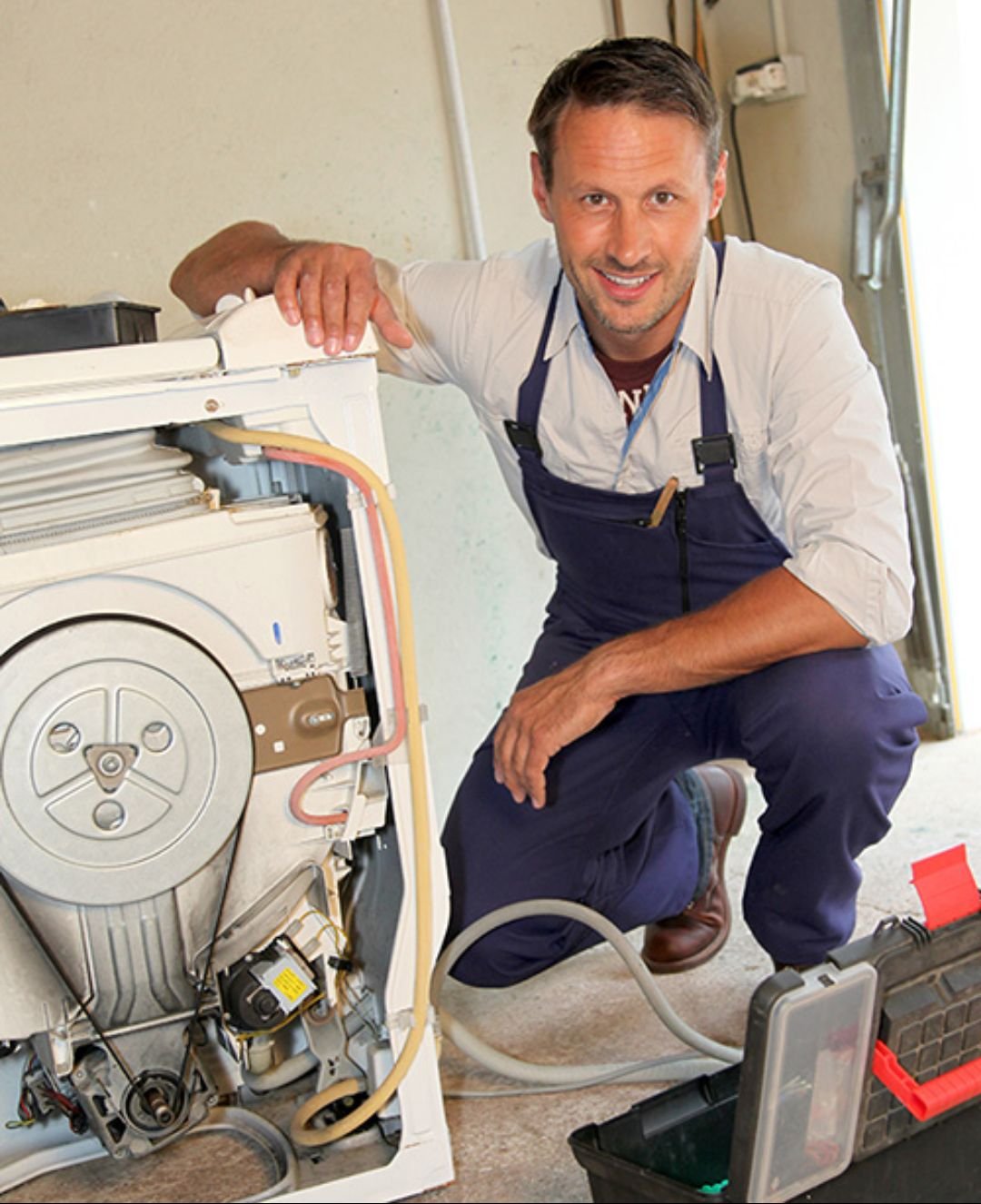Introduction
Noor Chill Tech Is your washing machine giving you trouble, or are you just hoping to keep it running smoothly for years to come? Washing machines are among the most valuable appliances in any home, but they also face wear and tear over time. Whether you’re dealing with strange noises, water leaks, or performance issues, knowing how to maintain and repair your washing machine can save you both time and money.
In this guide, we’ll walk you through everything you need to know about washing machine repair and maintenance. From troubleshooting common issues to tips on preventive care, Washing Machine Repair and Maintenance, this article will help you extend the life of your washing machine and keep it running like new.
Understanding How a Washing Machine Works

Before diving into maintenance and repair, it’s helpful to understand how a washing machine works. A washing machine uses a combination of water, detergent, and a rotating drum to remove dirt from your clothes. It’s a delicate balance, involving electrical circuits, Washing Machine Repair and Maintenance, valves, and motors. Knowing the basic mechanics can help you better diagnose any issues that may arise.
Signs Your Washing Machine Needs Maintenance
How do you know when your washing machine is due for some TLC? Here are a few telltale signs:
- Unusual noises: If you hear rattling, banging, or humming sounds, it could indicate a mechanical issue.
- Water leaks: Leaks are often a sign of loose hoses or damaged seals.
- Inconsistent cleaning: When clothes aren’t getting fully clean, it could be due to clogged filters or a lack of detergent circulation.
Basic Washing Machine Maintenance Tips
Routine maintenance can go a long way in preventing bigger problems. Here are some easy tips:
- Clean the lint filter regularly to prevent blockages.
- Check the hoses for cracks and replace them if necessary.
- Balance the load to avoid strain on the motor.
How to Clean Your Washing Machine
Keeping your washing machine clean isn’t just about appearance—it also ensures better performance and longevity.
1. Cleaning the Drum
Run an empty cycle with hot water and a cup of white vinegar. This will help break down any residue and prevent odors.
2. Cleaning the Filter
A clogged filter can lead to drainage problems. Check your manual to locate the filter and clean it every few months.
3. Cleaning the Detergent Drawer
Remove the drawer, rinse it under hot water, and scrub away any detergent buildup. Dry it before putting it back.
Troubleshooting Common Washing Machine Problems
Some issues are easy to fix at home. Here are a few common problems and solutions:
1. Washing Machine Won’t Start
Check if it’s plugged in and that the circuit breaker hasn’t tripped. Sometimes, a power surge can interrupt operation.
2. Machine Doesn’t Drain
This could be due to a clogged filter or drain hose. Clean these areas thoroughly and try again.
3. Unusual Noises During Operation
Loose parts or an unbalanced load might cause noise. Check the drum and redistribute clothes if necessary.
When to Call a Professional
While many issues can be fixed at home, certain problems require a professional. If you’re dealing with complex electrical issues or leaks that won’t stop, it’s time to call an expert. Attempting repairs without proper knowledge can be dangerous and may lead to more costly repairs down the road.
Preventive Maintenance Tips
Think of preventive maintenance as a regular checkup for your washing machine. Here are some simple ways to keep it running smoothly:
- Avoid overloading to reduce strain on the motor.
- Use the right amount of detergent—too much detergent can clog parts.
- Leave the door open after each wash to prevent mold and mildew buildup.
Understanding Different Washing Machine Types
Not all washing machines are built the same. Here’s a quick overview:
- Front-loaders: Known for energy efficiency but may require more frequent maintenance.
- Top-loaders: Easier to maintain but use more water.
- Compact models: Great for smaller spaces but may have limited capacity.
Do-It-Yourself (DIY) Washing Machine Repairs
Are you a DIY enthusiast? Here are a few simple repairs you can try at home:
- Replace a broken belt: With some basic tools, you can replace the belt in most washing machines.
- Fix minor leaks: Often, leaks are due to loose or damaged hoses. Secure or replace them as needed.
- Unclog the pump: If the machine won’t drain, locate and clean the pump filter.
Pro Tip: Always unplug your washing machine before attempting any repairs!
Best Practices for Washing Machine Use
Using your washing machine properly can make a big difference in its performance. Here are some best practices:
- Sort your clothes: Washing similar fabrics together reduces wear and tear.
- Use the right cycle: Each cycle is designed for specific fabrics and soil levels.
- Avoid heavy loads: Large loads can strain the motor and reduce efficiency.
Extending Your Washing Machine’s Lifespan

Washing machines are an investment, so naturally, you want yours to last as long as possible. Regular cleaning, avoiding overuse, Washing Machine Repair and Maintenance, and scheduling yearly maintenance checks are just a few ways to keep your machine in top shape.
Top Mistakes to Avoid in Washing Machine Care
Avoid these common mistakes:
- Using too much detergent: Excess detergent can build up and cause malfunctions.
- Forgetting to clean: Skipping regular cleaning can lead to odors and poor performance.
- Ignoring strange sounds: These sounds may signal a problem, Washing Machine Repair and Maintenance, and addressing them early can prevent bigger issues.
Conclusion
Washing machine maintenance doesn’t have to be daunting. With a few basic skills, Washing Machine Repair and Maintenance, you can keep your machine in excellent condition and tackle minor issues before they escalate. And remember, a well-maintained washing machine not only saves you money but also ensures cleaner clothes and a more efficient laundry routine.
Frequently Asked Questions (FAQs).
1. How often should I clean my washing machine?
Ideally, you should clean it every month to prevent residue buildup and odors.
2. What should I do if my washing machine starts leaking?
Check the hoses and seals. If you can’t find the source, it might be time to call a professional.
3. Why is my washing machine making a loud noise?
A loud noise could indicate an unbalanced load, loose parts, or a worn-out belt.
4. Can I repair my washing machine myself?
Simple repairs like unclogging the filter or securing hoses can be done at home. For electrical issues, it’s best to consult a professional.
5. How can I prevent mold in my washing machine?
Leaving the door open after each wash helps air out the drum, preventing mold and mildew growth.
